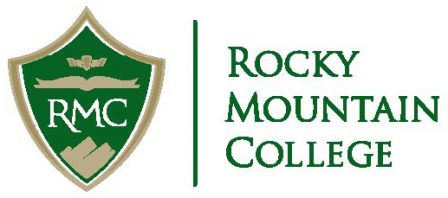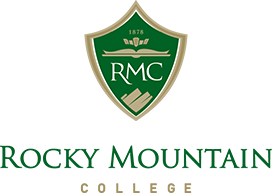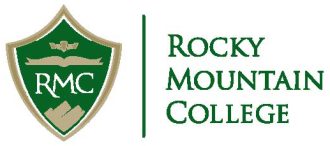Course Descriptions
April 27, 2023 2023-12-21 13:03*Upon graduation from the program students will have completed 103 semester credits - 61 during the Didactic year and 42 during the Clinical year.
Didactic Year
PHA 501: Introduction to Clinical Medicine
Fall Semester
Semester hours: 1
This course will introduce the PA student to general concepts of the study of clinical medicine. Terminology and evidence-based medicine will be reviewed.
PHA 505: Evidence-Based Medicine - Research, Communications, and Applications
Fall Semester
Semester hours: 3
A critical component of health care practice is the ability to recognize needs for information and possessing the skills/ability to locate, evaluate, and use the needed information effectively. This course is designed to enable students with the competencies needed to become independent lifelong learners able to make informed decisions based on critical reasoning and evaluation of medical and scientific literature and to communicate their knowledge in written and verbal forms. The effects of public health information literacy on health care delivery and the role of primary care providers in promoting patient health information literacy are also explored. Students are introduced to the principles of clinical research design and epidemiology, including literature search, methodology, data collection, data management, and reporting of results and conclusions.
PHA 508: Biostatistics
Summer Semester
Semester hours: 1
This course is designed to acquaint the student with the basics of biostatistics and emphasizes how an understanding of these areas is important in clinical medicine. An understanding of biostatistics is important not only for analyzing the results of research, but also for understanding and reducing errors. This course centers on cases to illustrate pertinent concepts and prepares the student to be a responsible dispenser of medical resources and a knowledgeable consumer of the medical literature. Pitfalls and biases of both medical practice and publications as they relate to statistics are a major focus.
PHA 509: Professional and Medical Practice Issues
Fall, Spring, and Summer Semester
Semester hours: 1
This course, which is taken in each of the three full didactic semesters, examines a professional's obligations and a patient's rights in regard to ethical and social issues in medicine. Thorny dilemmas, such as the role of using humans in research studies, decisions not to treat or resuscitate, inherent conflicts in genetics and reproductive technologies, as well as professional concerns about paternalism, patient rights, and confidentiality are examined. Students learn to think critically, drawing upon their own experience, to develop an understanding of how to handle ethical dilemmas while practicing primary care medicine. Preparation includes understanding how to interpret medical literature and how to ethically apply research. Additionally, students learn the history of the PA profession and become culturally and socially aware of how professional credentialing, the regulation of caregiver's clinical responsibilities, and ethical/legal considerations influence their interaction with patients, as well as their place in the profession.
PHA 518: Allergy/Immunology
Fall Semester
Semester hours: 2
This course introduces the student to the pathophysiology, pathology, clinical medicine, diagnostic and therapeutic modalities, and preventative medicine aspects in the practice of allergy and immunology.
PHA 520: Physical Assessment
Fall Semester
Semester hours: 3
This course prepares students to master the art of taking medical histories and performing physical examinations. The focus is on recognition of "normal" and the significance of "abnormal" findings. A systems approach is used and the material is taught using a lecture, demonstration, and lab practicum format. A laboratory session is scheduled weekly to incorporate/practice skills presented in the lectures.
PHA 522: Hematology
Fall Semester
Semester hours: 2
This course introduces the student to the pathophysiology, pathology, clinical medicine, diagnostic and therapeutic modalities, and preventive medicine aspects in the practice of hematology.
PHA 523: Pulmonology
Spring Semester
Semester hours: 2
This course introduces the student to the pathophysiology, pathology, clinical medicine, diagnostic and therapeutic modalities, and preventative medicine aspects in the practice of pulmonology.
PHA 524: Cardiology
Spring Semester
Semester hours: 2
This course introduces the student to the pathophysiology, pathology, clinical medicine, diagnostic and therapeutic modalities, and preventative medicine aspects in the practice of cardiology.
PHA 527: Nephrology
Spring Semester
Semester hours: 2
This course introduces the student to the pathophysiology, pathology, clinical medicine, diagnostic and therapeutic modalities, and preventative medicine aspects in the practice of nephrology.
PHA 531: Behavioral Dynamics
Spring Semester
Semester hours: 2
The recognition and management of common psychosocial problems is a critical skill to develop as a primary care provider. The fundamental role of interviewing and history taking will be emphasized as students are introduced to several techniques that will facilitate communicating and developing rapport with the patient. Treatment will be discussed from a bio-psychosocial perspective with reference to psychotherapies, psychopharmacology, and environmental intervention. The role that psychosocial dynamics play in all areas of medicine will be of major focus and case studies are used to emphasize the delicate interplay. Psychiatric topics covered will include anxiety disorders, mood disorders, psychoses, organic conditions, substance use disorders, personality disorders, eating disorders, and psychiatric emergencies and crises. Additionally, there is an introduction to the concepts of death, dying, and bereavement.
PHA 533: Infections Disease
Fall Semester
Semester hours: 2
This course introduces the student to the pathophysiology, pathology, clinical medicine, diagnostic and therapeutic modalities, and preventative medicine aspects in the practice of infectious disease.
PHA 535: Gastroenterology
Spring Semester
Semester hours: 1
This course introduces the student to the pathophysiology, pathology, clinical medicine, diagnostic and therapeutic modalities, and preventative medicine aspects in the practice of gastroenterology.
PHA 538: Clinical Human Anatomy and Physiology
Summer Semester
Semester hours: 4
This course is designed to teach students the essentials of gross anatomy and physiology pertaining to clinical practice. Cadavers and cadaveric specimens will play a fundamental role as we relate lecture/discussions to laboratory study. Students will learn to relate anatomical structures in the human body, skeletons, and models to imaging studies. The surface anatomy component introduces the student to the clinical setting and describes the visible and palpable anatomy that forms the basis of physical examination. Through laboratory workshops, students will learn to visualize how their interaction with the body's surface interplays with internal anatomy. Additionally, a thorough review of concepts of physiology as they pertain to health and disease will be provided with a focus placed on each major organ system. Both portions of this course are designed as a focused review and an approach to ensure physician assistant students entering the clinical medicine courses have a firm grasp of anatomical and physiological concepts and begin to apply physiological reasoning to clinical situations.
PHA 539: Neurology
Spring Semester
Semester hours: 2
This course introduces the student to the pathophysiology, pathology, clinical medicine, diagnostic and therapeutic modalities, and preventative medicine aspects in the practice of neurology.
PHA 543: Endocrinology
Fall Semester
Semester hours: 2
This course introduces the student to the pathophysiology, pathology, clinical medicine, diagnostic and therapeutic modalities, and preventative medicine aspects in the practice of endocrinology.
PHA 546: Pediatrics
Spring Semester
Semester hours: 2
This course will examine infant and child health and development, focusing on major common pediatric illnesses and their signs, symptoms, and management relative to the primary health care provider. The problem-oriented medical record is presented, i.e., the pediatric history and physical examination. Specific problems of the newborn and older child will be presented for discussion in such areas as immunity and allergy, pharmacotherapy, medical emergencies, preventive health care, and the psychosocial and developmental disabilities specific to pediatrics. Students will learn to perform and demonstrate an infant exam. Specific strategies for physical examination of the pediatric patient will be learned and practiced on live patients in a skills lab.
PHA 547: Ophthalmology
Fall Semester
Semester hours: 2
This course introduces the student to the pathophysiology, pathology, clinical medicine, diagnostic and therapeutic modalities, and preventative medicine aspects in the practice of ophthalmology.
PHA 549: Oncology
Spring Semester
Semester hours: 1
This course introduces the student to the pathophysiology, pathology, clinical medicine, diagnostic and therapeutic modalities, and preventative medicine aspects in the practice of oncology.
PHA 550: Introduction to Clinical Practice
Spring Semester
Semester hours: 2
This course introduces the student to the diverse practices of medicine including: rehabilitative medicine, occupational medicine, and environmental medicine. It also introduces the student to the administrative functions associated with medical practice, such as various forms of medical documentation, patient charts, CPT/ICD-9 coding and third-party billing. Students will use their examination and history taking skills on standardized patient models in the campus physical assessment labs and then apply the administrative functions to the patient model scenarios. In addition, they will shadow volunteer medical providers or allied health professionals in the medical community throughout the semester.
PHA 551: Urology
Summer Semester
Semester hours: 2
This course introduces the student to the pathophysiology, pathology, clinical medicine, diagnostic and therapeutic modalities, and preventative medicine aspects in the practice of urology.
PHA 556: Surgery
Summer Semester
Semester hours: 2
This course introduces the student to the pathophysiology, pathology, clinical medicine, diagnostic and therapeutic modalities, and preventative medicine aspects in the practice of surgery.
PHA 557: Otorhinolaryngology
Spring Semester
Semester hours: 1
This course introduces the student to the pathophysiology, pathology, clinical medicine, diagnostic and therapeutic modalities, and preventative medicine aspects in the practice of otorhinolaryngology.
PHA 561: Obstetrics/Gynecology
Summer Semester
Semester hours: 2
This course introduces the student to the pathophysiology, pathology, clinical medicine, diagnostic and therapeutic modalities, and preventative medicine aspects in the practice of obstetrics/gynecology.
PHA 562: Orthopedics
Summer Semester
Semester hours: 2
This course introduces the student to the pathophysiology, pathology, clinical medicine, diagnostic and therapeutic modalities, and preventative medicine aspects in the practice of orthopedics.
PHA 572: Dermatology
Summer Semester
Semester hours: 1
This course introduces the student to the pathophysiology, pathology, clinical medicine, diagnostic and therapeutic modalities, and preventative medicine aspects in the practice of dermatology.
PHA 574: Rheumatology
Summer Semester
Semester hours: 1
This course introduces the student to the pathophysiology, pathology, clinical medicine, diagnostic and therapeutic modalities, and preventative medicine aspects in the practice of rheumatology.
PHA 575: Genetic & Molecular Basis of Health & Disease
Summer Semester
Semester hours: 2
The focus of this course is to gain an understanding of the biochemical, molecular, and genetic basis for health and disease with an emphasis on clinical applications. The purpose of this course is to provide students with a knowledge base that can be applied throughout their study of medicine.
PHA 610: Emergency Medicine
Summer Semester
Semester hours: 3
This course will present a systematic approach to the evaluation, recognition, and management of medical and surgical emergencies, which might be frequently encountered by the primary care physician assistant. Using a formal lecture/discussion format, the course will focus on etiology, evaluation, emergency treatment, and stabilization of more common emergency injuries and disease presentations. The focus of the course is in providing students the necessary skill set to function in rural, underserved areas where the physician assistant might be responsible for identification of significant life threats, emergency treatment, and stabilization for evacuation to a higher level of care. Curriculum includes instruction and certification in the American Heart Association's Basic Cardiac Life Support (BCLS), Advanced Cardiac Life Support (ACLS), and Pediatric Advanced Life Support (PALS) courses. Advanced training is provided in trauma assessment and stabilization, which includes instruction and practical performance laboratory for all critical skills identified in the American College of Surgeon's Advanced Trauma Life Support (ATLS) course.
PHA 621: Problem-Based Clinical Correlation
Summer Semester
Semester hours: 2
This course is designed to assist students in becoming critical thinkers who can apply the concepts of medical decision-making and problem solving. The course utilizes a Problem-Based Learning (PBL) approach to teach students to critically evaluate and apply the clinical information they derive through medical history, physical examination, diagnostic testing, and pertinent medical literature to the real-life resolution and management of health care problems.
PHA 636: Patient Safety - Unifying Themes
Summer Semester
Semester hours: 3
Students will employ the Institute of Healthcare Improvement Open School modules on leadership, patient safety, and quality improvement. Building upon concepts and discussions begun during the didactic year regarding evidence-based medicine, ethics, and professionalism, the student will leave the program with a focus on enhancing patient safety through communication, data gathering, and quality improvement techniques.
PHA 638: Case Study and Community Education Project
Summer Semester
Semester hours: 3
Students will apply skills learned from Evidence-Based Medicine: Research, Communications and Applications, and Professional and Medical Practice Issues to choose a case study developed and researched during the clinical rotations. The course will conclude with an oral presentation to second-year peers and the faculty of a literature supported case study and a written 3-5 page paper. Case study development will be mentored by the director of clinical education and supported by the core faculty. Presentations will be delivered the week of graduation.
PHA 641: Geriatrics
Summer Semester
Semester hours: 2
This course provides an introduction to gerontology with an emphasis on the normal biological, sociological, behavioral, and environmental changes that occur with age. Consequences of aging from the perspective of primary health care providers will be presented. Principles and methods of multidimensional assessment relative to the recognition and management of medical disease and mental illness with an emphasis on maximizing functional independence is discussed.
Clinical Year
PHA 651: Clinical Rotations I*
Fall Semester
Semester hours: 12
Students complete clinical rotations as assigned by the physician assistant program.
PHA 652: Clinical Rotations II*
Spring Semester
Semester hours: 12
Students complete clinical rotations as assigned by the physician assistant program.
PHA 653: Clinical Rotations III*
Summer Semester
Semester hours: 12
Students complete clinical rotations as assigned by the physician assistant program.
Clinical Rotations
*These rotations will include the following:
Family Practice Rotation
This core rotation of six weeks is structured to provide an understanding of various medical disorders and their complications experienced by patients of all age groups. Within this setting, the emphasis is on the accurate collection, assessment, and presentation of patient data for physician review, indications for laboratory and imaging diagnostics, and the education of patients regarding health risk behaviors and therapeutic regimens.
Emergency Medicine Rotation
This core rotation of six weeks is designed to provide an in-depth exposure to the illnesses and injuries sustained by children and adults that necessitate emergency care. The educational experiences emphasize the focusing of interview and examination skills and the performance of techniques and procedures essential to the proper management of life-threatening illnesses and injury. Ventilatory assistance, cardiopulmonary resuscitation, fluid and electrolyte replacement, and acid-base balance are stressed.
General Internal Medicine Rotation
This core rotation of six weeks is designed to provide clinical practice experience with the various acute and chronic medical disorders/complications that necessitate hospitalization and further evaluation for adult patients, with special emphasis on geriatric patients and the care provided in both acute and long-term care facilities.
General Pediatrics Rotation
This required core rotation of six weeks is structured to provide the student with an in-depth exposure to the assessment and management of children and adolescents. Included will be a focus on the newborn physical, well-child care, and those acute processes unique to the pediatric patient.
Obstetrics/Gynecology (Women's Health) Rotation
This core rotation of six weeks provides exposure to the spectrum of problems and issues associated with women's health care as well as routine prenatal, intrapartum, and postpartum obstetrical care. Learning experiences will also include family planning and birth control, recognition and treatment of sexually transmitted infections, cancer detection, and evaluation of common gynecological problems.
General Surgery Rotation
This core rotation of six weeks provides an orientation to patients of various ages with surgically manageable diseases. The emphasis of the learning experiences are on the preoperative evaluation and preparation of patients for surgery, assistance during the intraoperative period to develop an understanding of team member roles and operative procedures, and post-operative patient management and care of surgical wounds and complications.
Psychiatry Rotation
This core rotation of six weeks is designed to provide an understanding of the behavioral components of health, disease, and disability. Exposure to patients with a variety of emotional illnesses and disabilities are used to develop informed history-taking and mental status examination skills, the ability to recognize and categorize psychiatric disturbances, and techniques for early intervention and psychiatric referral.
Elective Rotation
This rotation of six weeks is designed to give students an opportunity to explore professional options as physician assistants and may include additional clinical practice in any of the core rotations, any medical or surgical subspecialty, or experiential learning in academic medicine.
Syllabi have been developed for common elective rotations. A student who desires to complete an elective rotation that is not included among those previously developed needs to have prior approval by the program director. An appropriate syllabus will be developed and must be approved by the Program Curriculum Committee before the rotation begins.
Contact
Rocky Mountain College
1511 Poly Drive
Billings, MT 59102


